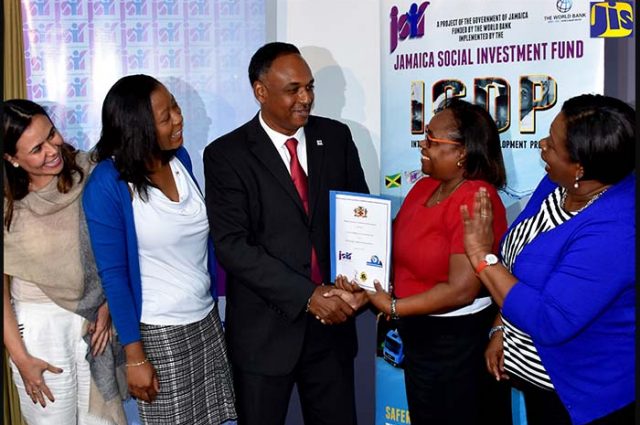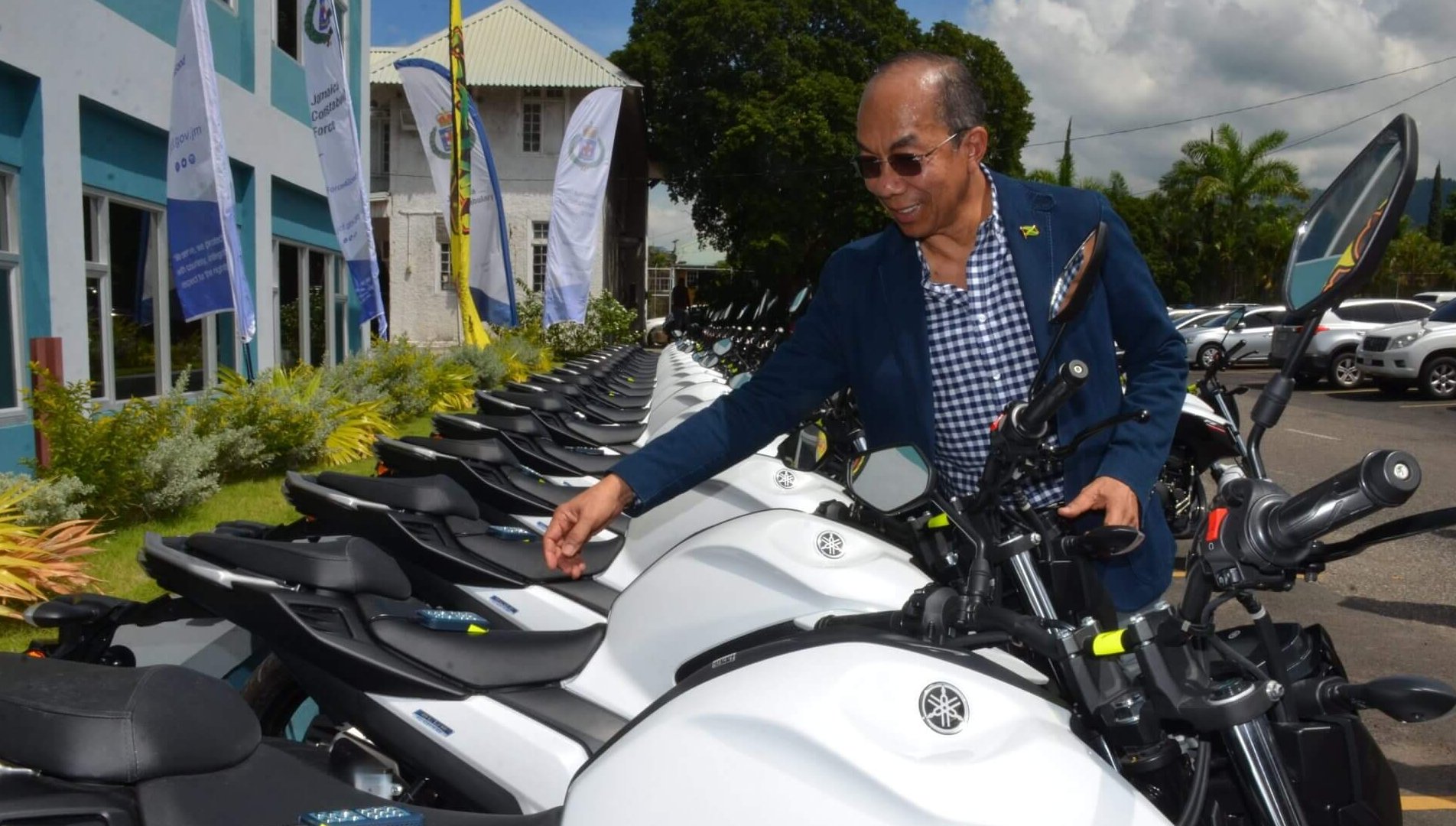JSIF to Implement Projects to Benefit Thousands of Youth
More than 10,000 youth, deemed ‘at-risk’, are to benefit from jobs and other income-generating activities to be created from projects that the Jamaica Social Investment Fund (JSIF) will be implementing during the 2017/18 fiscal year.
The JSIF, an agency in the Office of the Prime Minister (OPM), is investing $2 billion in activities that will support the Government’s undertaking to neutralise factors deemed risks to the growth agenda.
This will be done by facilitating sustainable livelihoods in the target communities under programmes such as the Housing, Opportunity Production and Employment (HOPE) initiative, as part of the thrust to arrest the systemic drivers of poverty.
The JSIF’s projects are being facilitated with support provided by the Government as well as several international development partners
They include the Caribbean Development Bank, through the Basic Needs Trust Fund; the World Bank, under its Integrated Community Development Project; and the European Union’s Poverty Reduction Programme.
Details of the wide-ranging activities are outlined in the JSIF’s submission to the OPM.
Notable among them is a series of workforce development, employment and wealth creation initiatives targeting residents in Community Renewal Programme (CRP) neighbourhoods, for which JSIF is spending $685 million.
The CRP is a multifaceted Government programme designed to address the living conditions in 100 communities that have been identified in Kingston and St. Andrew, St. Catherine, Clarendon and St. James as the most socially problematic as a result of their volatility and vulnerability.
It addresses community empowerment, housing, sanitation and waste disposal, economic opportunity, recreation, dispute resolution and crime, among other issues.
The agency is spending $80 million on activities that will generate 1,400 new, short-term and temporary jobs that will span a duration of two weeks to 12 months.
These include data collectors for the proposed civil documentation programme; summer camp staff; unskilled labour for infrastructure work sites; and internships.
A total of $67 million is earmarked for employment projects for 305 beneficiaries that will run for one year.
Of this, $30 million has been budgeted to remunerate 165 persons who will be recruited as environmental wardens and gazetted legal officers under the National Solid Waste Management (NSWM) Act.
This is in keeping with the Administration’s comprehensive solid waste management programme focusing on the collection and disposal of refuse, enforcement and community sensitisation as well as improvement of communities’ infrastructure.
The beneficiaries will be responsible for enforcing the anti-litter laws, and sensitising residents to sustainable environmental management and community clean-up exercises.
The agency is investing another $27 million in its employment internship component, targeting 50 unemployed young persons, aged 17 to 25.
They will be placed with local private-sector entities for 12 months, where they will be exposed to the corporate world of work; laying the foundation for career choices and getting opportunities to build valuable business networks.
In its submission, JSIF views the programme as fundamental to providing income-loss relief, building workplace competencies and experience and contributing to social and economic inclusion that supports Goals One and Two of the Vision 2030 Jamaica National Development Plan.
Additionally, the agency says the endeavour is also in line with the Community Renewal Programme’s agenda for youth and socio-economic development.
Meanwhile, JSIF will employ 90 certified trainees from the Alternative Livelihoods programme and link them with seasoned skilled personnel and service providers in the public and private sectors.
This is with a view to sharpening the trainees’ skills and positioning them to meet industry standards and needs.
The JSIF indicates that the timeline for this training and apprenticeship programme, which will cost approximately $10 million, will be determined by the participating entities.
Under the short-term employment projects, JSIF has earmarked $4.1 million to remunerate 220 facilitators and monitors under the summer camp programmes, for periods ranging from two weeks to one month.
The facilitators will support violence prevention and personal development activities targeting children and youth, aged six to 24.
The agency has also earmarked $4 million for a six-month community interactive mapping project that will employ 55 persons.
They will be tasked with assisting to identify challenges and solutions related to the mapping of safe routes in target communities as also the eradication of mosquito breeding sites.
Additionally, 25 persons will be employed over three months to revitalise and beautify parks, green and public spaces, playgrounds and sports facilities. A total of $1.8 million is earmarked for this programme.
The engagement represents a continuation and expansion of JSIF’s investments in support of public safety and will focus on volatile and vulnerable communities in downtown Kingston, Spanish Town, Montego Bay, May Pen, Ocho Rios and Savanna-la-Mar.
“This will support the urban-renewal thrust, job creation and growth,” JSIF points out.
Meanwhile, JSIF is partnering with the Registrar General’s Department (RGD) to implement a data-collection/civil documentation project that will generate Taxpayer Registration Numbers (TRNs), birth certificates and other documents for 4,200 residents.
This engagement, which costs $1 million, will employ 60 data collectors and seven supervisors to interview and register residents by conducting household visits and attending community and other stakeholder meetings.
JSIF is also investing another $126 million to facilitate business development and technical support to agricultural and tourism enterprises that will benefit 700 persons.
This activity is aimed at driving economic activity in rural communities, while contributing to national growth.
Key inputs under this project include the provision of agro-processing facilities; greenhouse clusters; and community-based tourism attractions.
These undertakings, JSIF explains, are aimed at ensuring that previous investments in honey production; in-vitro propagation of Irish potato seeds and pig rearing are sustained and attain maximum outputs.
Article by: Douglas McIntosh
Photo from: www.jis.gov.jm




